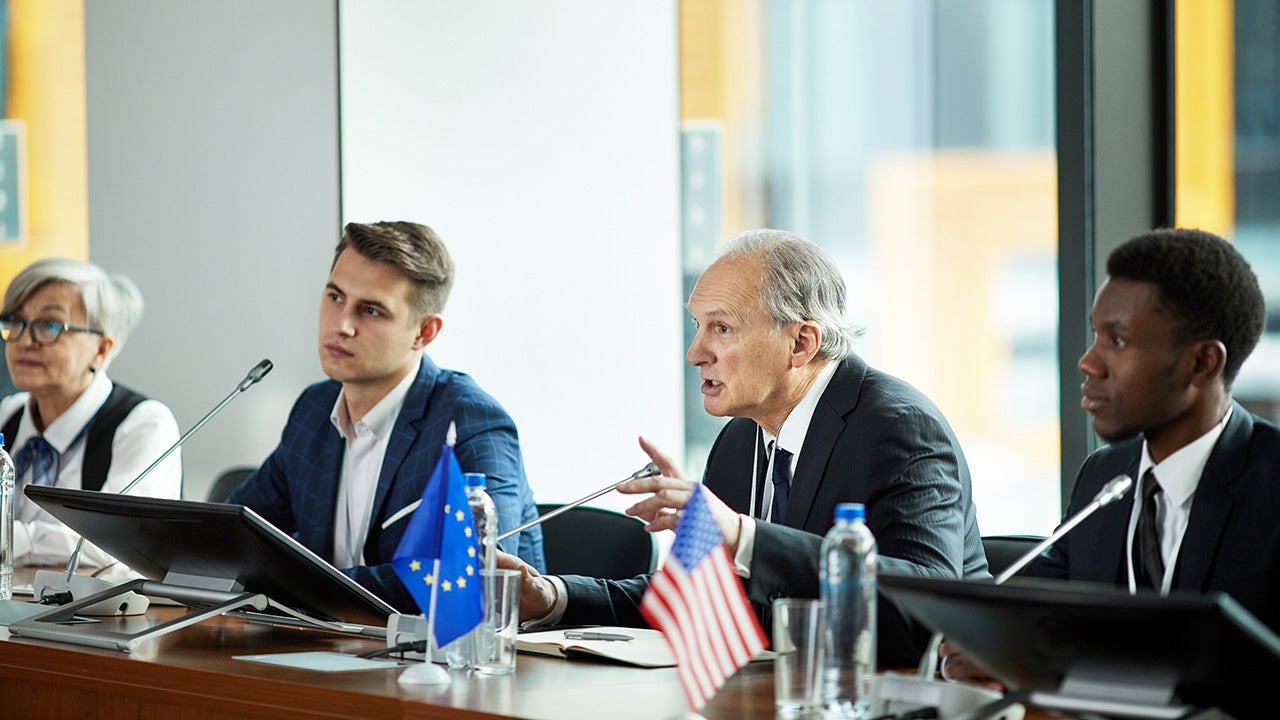More than 50 speakers from government, the private sector, and academia joined the virtual 2021 Aspen Security Forum on August 3 and 4 to discuss the most important foreign policy challenges in the world today.
The two-day public event began with a conversation with Prime Minister of Singapore Lee Hsien Loong, who spoke to the need for international cooperation to combat the COVID-19 pandemic and called on the US to be a “stable anchor for the international order.”
The prime minister’s conversation was followed by a discussion on the purpose and future of the “Quad,” an informal grouping of the US, Japan, India, and Australia designed to coordinate on challenges in the Indo-Pacific region. Arguing against the expansion of the Quad, C. Raja Mohan, director of the Institute of South Asian Studies at the National University of Singapore, proposed that the members should instead focus on deepening existing cooperation because “China’s rise has weakened US alliances in this part of the world.”
Following the discussion on the Quad, the Forum hosted a two-part session on the state of Afghanistan. US Special Representative for Afghanistan Reconciliation Zalmay Khalilzad told PBS NewsHour Senior National Correspondent Amna Nawaz “the best-case scenario is a negotiated settlement” reflecting the realities of modern-day Afghanistan, adding that “this war has no legitimacy anymore.”
Discussing the ramifications of the US withdrawal from Afghanistan, former director of the Central Intelligence Agency David Petraeus acknowledged that the current Afghan government exhibits “shortcomings and deficiencies” but warned that the Taliban would return Afghanistan to the kind of “regime that allowed al-Qaeda to have a base on its soil.”
In an Aspen Security Forum policy exclusive about the Biden administration’s efforts to create more robust cryptocurrency investor protections, SEC Chair Gary Gensler compared digital currency speculative investment markets to “the Wild West” and warned that there are national security implications for unregulated markets in which investors cannot assess risk.
The second day of the virtual 2021 Aspen Security Forum opened with a conversation with Asian Infrastructure Investment Bank President Jin Liqun about the bank’s most pressing priorities in 2021 and beyond. Jin stated that the recent shift toward healthcare infrastructure investment during the COVID-19 pandemic does not deviate from the bank’s mission because “healthcare is social infrastructure” and that “no nation is productive unless it’s healthy.”
In her conversation with New York Times White House and National Security Correspondent David Sanger, Deputy National Security Advisor for Cyber and Emerging Tech Anne Neuberger said the first goal of the Biden administration’s ransomware strategy is “disrupting the ecosystem that feeds ransomware,” which requires the US to work with allies and partners to hold countries who harbor ransomware actors accountable.
Confident that a majority of the Scottish population would vote for independence in the next referendum, the First Minister of Scotland Nicola Sturgeon said an independent Scotland would be “a constructive, multilateralist partner in the international stage.”
In a conversation with Zanny Minton Beddoes, editor-in-chief of The Economist, Paschal Donohoe, president of the Eurogroup and minister of finance of Ireland, said he is “in favor of tax competition” but recognized that an agreement on the US-proposed global minimum corporate tax rate is “more likely than ever.”


